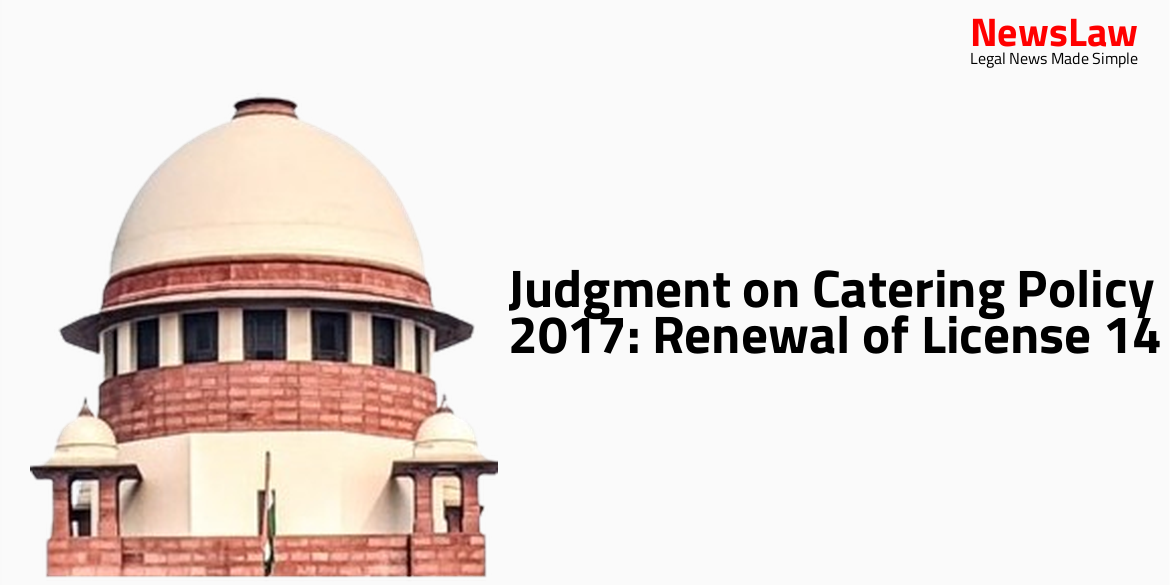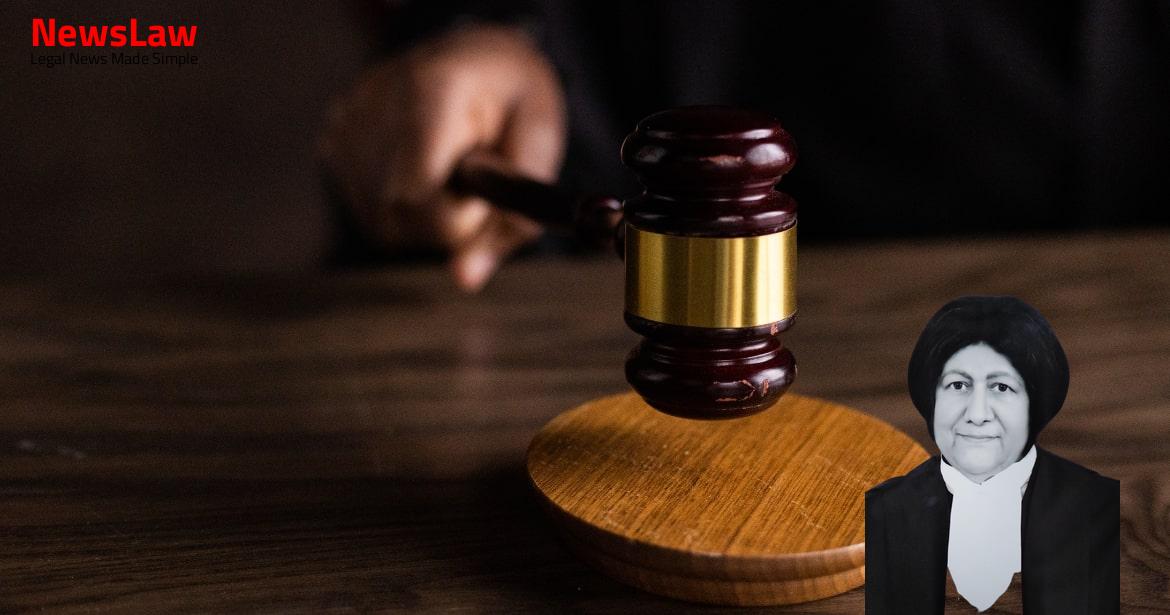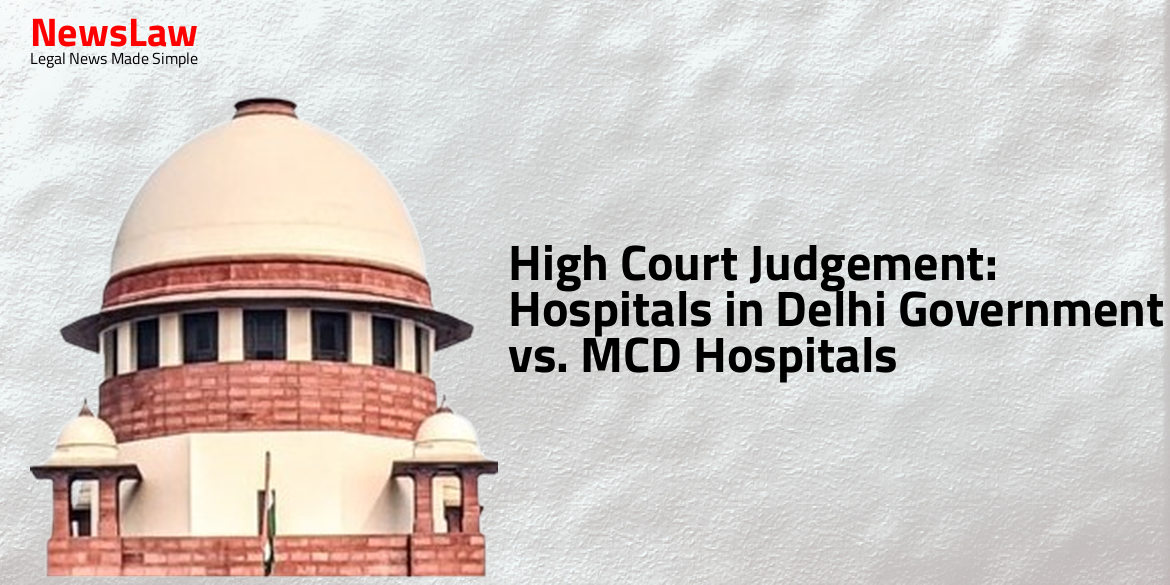In a significant ruling by the Delhi High Court, the matter of renewal of License 14 under the Catering Policy 2017 is being addressed. The court’s judgment holds implications for the rights of the petitioners and the application of relevant legal precedents. Stay informed as we delve into the details of this case.
Arguments
- Petitioners argue that the Catering Policy 2017, specifically Clause 11, violates Articles 14, 19(1)(g), and 21 of the Constitution by depriving them of the right to renew their licenses and forcing them to compete against larger entities.
- They rely on legal precedents such as Olga Tellis v. Bombay Municipal Corpn., Consumer Education & Research Centre v. Union of India, South Central Railways case, and Vendors Cooperative Society v. Union Of India to support their argument.
- Petitioners claim they signed the license agreement under coercion, economic duress, and due to an unequal bargaining position compared to the railways.
Analysis
- The jurisdiction of the court to declare the law unconstitutional is affirmed.
- The court emphasizes the executive’s authority to make policy decisions for better administration.
- The court cannot legislate but can interpret and uphold laws.
- Dispute resolution clauses in contracts should be invoked by parties before seeking court intervention.
- The court can entertain writ petitions challenging Clause 11 of the Catering Policy 2017.
- Negotiation for novation of contracts is suggested.
- Force Majeure clause was implemented for non-operational contracts during lockdown.
- Extension of contract period due to force majeure event was permissible.
- Licenses are revocable by the grantor, and no vested right exists for renewal of licenses.
- The policy decision of railways to re-tender after license expiry does not violate rights to livelihood.
- Participation in tenders implies acceptance of terms regarding license tenure and extensions.
- The court’s jurisdiction is upheld, and territorial limits do not prevent it from issuing necessary writs.
- The court supports re-tendering to rectify disparities and emphasizes opportunities for deserving individuals.
- Reservation policies within Catering Policy 2017 uphold social welfare and minority rights.
- Undue influence or coercion claims must be clearly pleaded by the party making the allegations.
- Reliance on past relaxations or precedents for extension of tenure does not guarantee similar treatment in all cases.
- Writ of Mandamus cannot be used to direct enactment of laws or framing of rules.
- Enforcement of fundamental rights or statutory rights justifies the issuance of Mandamus.
- The truth or falsity of the averments in a petition regarding the Court’s territorial jurisdiction is immaterial.
- The challenge to paragraph 1744 of the Indian Railways Commercial Manual exists without delving into its merits.
- The doctrine of estoppel by election is a rule of equity, precluding one from asserting a right contradicting previous actions.
- A breach or threat to breach a fundamental, statutory, or enforceable equitable right is necessary for a writ of Mandamus.
- Judicial review of policy decisions differs from mandamus to frame policy in a specific manner.
- The doctrine of election is based on estoppel, preventing someone from taking inconsistent positions.
- Compelling factors do not justify acceptance of contractual terms, especially in commercial transactions.
- Contracts between the State and individuals/entities are governed by contract terms and laws, not profit guarantees or immunity from losses.
- Parties cannot blow hot and cold or approbate and reprobate in contractual matters.
- Tenders are invitations to offer, leading to contracts upon acceptance by the State, with writs only applicable in exceptional cases.
- Individual license agreements and Catering Policy 2017 contain arbitration clause for grievances or claims
- No merit found in the present petitions, they are dismissed
- Petitioners granted 3 months to vacate catering units for transition to alternative vending arrangements
- Petitioners to pay usual license fee during the transition period
- All pending applications disposed of
Decision
- The present petitions are held to be maintainable.
- Renewal of License 14 is to be considered.
- The petitions have been accepted for further proceedings.
Case Title: M/S R. K. FOOD PRODUCTS Vs. UNION OF INDIA & ORS. (2024:DHC:4476)
Case Number: W.P.(C)-4450/2024



